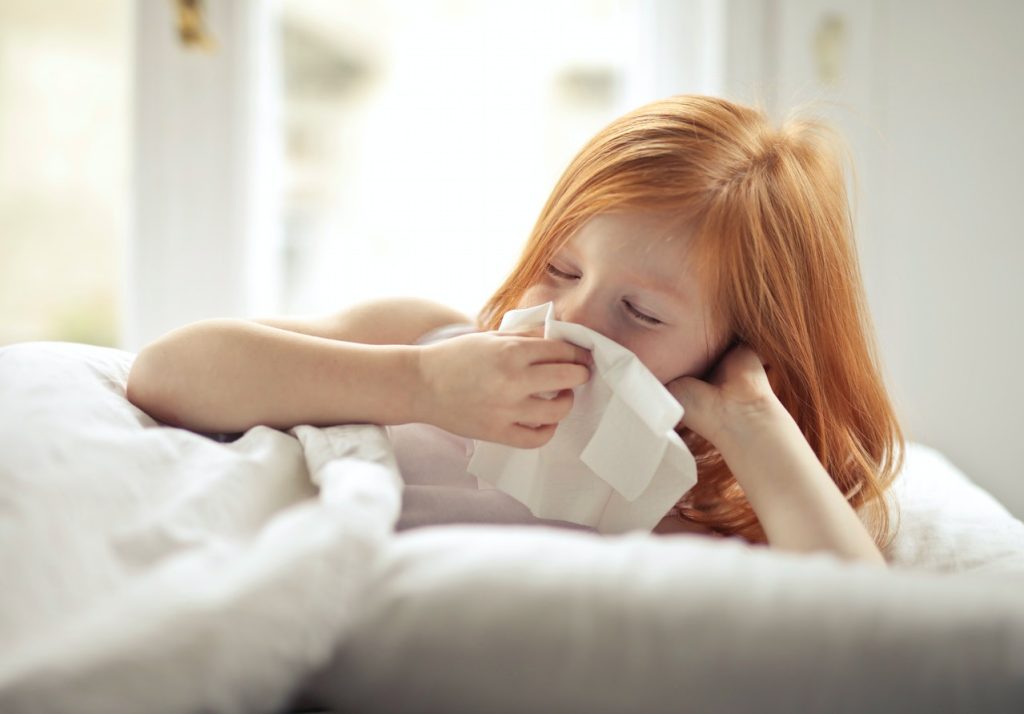You’re constantly sneezing, your eyes are watery, your throat is dry, and your nose won’t stop running. If you find that you experience these symptoms only during certain times of the year, you’re not alone. In 2018, the Asthma and Allergy Foundation of America reported that about 24 million people in the United States suffered from seasonal allergies.
Seasonal allergies are caused by an immune system reaction to pollen, trees, grass, mold spores in the air, or other environmental substances. When these particles come into contact with your nose, mouth, or eyes, your body releases histamines in an attempt to get rid of them. Histamines cause symptoms typically associated with allergies, such as a runny nose, itchy eyes, and sneezing.
If you’re one of the millions of people who suffer from seasonal allergies yearly, you know how debilitating these symptoms can be. For some, they’re merely an annoyance. For others, they can interfere with work, school, and daily activities.

5 Tips to Avoid Seasonal Allergies
Fortunately, there are several things you can do to get rid of seasonal allergies and ease your symptoms.
1. Know Your Triggers
One of the best things you can do to manage your seasonal allergies is to identify your triggers. Pay attention to when your symptoms start and what’s going on around you at that time. Are the flowers blooming? Has there been a lot of rain? Is someone mowing the lawn nearby? Once you know what your triggers are, you can avoid them as much as possible.
If you’re still unsure what your triggers are, consider seeing an allergist. They can do a skin prick test or a blood test to determine what you’re allergic to. Once you know what you’re allergic to, it will be easier to avoid your triggers.
2. Avoid Being Outdoors When Pollen Counts Are High
If you want to avoid pollen, it’s important to know when pollen counts are high. This can typically vary depending on the type of pollen you’re allergic to. For example, tree pollen is usually highest in the spring, while grass pollen is highest in early summer.
You can find out the pollen count for your area by checking the National Allergy Bureau’s website or downloading their app. You can also listen to your local weather forecast, as they will often report the pollen count. If the pollen count is high, try to stay indoors as much as possible. If you have to go outside, be sure to take some steps to protect yourself. Wear a hat, sunglasses, and a face mask.
Once you go indoors, chances are you’re carrying pollen and other allergens on your clothes and skin. To avoid bringing them into your home, take off your shoes at the door and change into clean clothes. Be sure to wash your hair and shower as soon as possible to get rid of any allergens on your body. Showering will also prevent pollen from spreading to other areas of your home.

3. Keep Your Home Allergen-Free
Another thing you can do to avoid seasonal allergies is to keep the windows in your house closed as much as possible. If you have to open them, do so during the time of day when pollen counts are lower. It’s also important that you vacuum regularly and use an air purifier with a HEPA filter to trap allergens in the air. Choose one designed to remove the specific type of particle you’re allergic to, whether it’s pollen, dust mites, or pet dander.
In addition, you can make your home allergen-free by frequently washing bedding, curtains, rugs, and other fabric surfaces. Your bedding, in particular, should be washed in hot water at least once a week to get rid of dust mites — one of the most common indoor allergens.
And don’t forget about your pets! If you have pets that go outdoors, make sure to brush them before they come inside to avoid pollen and other allergens coming into the house. Make it a habit to bathe them regularly to reduce the amount of dander they shed. You may also want to keep them out of your bedroom to further reduce your exposure to allergens.
4. Take Allergy Medication
If you’ve tried avoiding your triggers and taking other preventive measures but still suffer from allergies, it may be time to take medication.
There are a number of over-the-counter and prescription medications available that can help with seasonal allergies.
- Antihistamines can help relieve seasonal allergy symptoms by blocking histamine — the compound that your body releases in response to an allergen.
- Decongestants can help relieve congestion and pressure by shrinking the blood vessels in your nose.
- Nasal corticosteroid sprays can help reduce inflammation, but they should only be used as directed.
If you’re not sure which medication is right for you, talk to your doctor or an allergist. Be sure that you’re taking the medication as directed and following the instructions properly. Some nasal sprays need to be used daily in order to be effective.

5. Consider Immunotherapy
If you’ve tried everything else and nothing has worked, you may want to consider immunotherapy. Immunotherapy is a long-term treatment that can help reduce your allergy symptoms and make them more manageable. It involves gradually exposing your body to the allergen so that your immune system can build up a tolerance to it.
There are two types of immunotherapy — allergy shots and sublingual immunotherapy (SLIT). Allergy shots are injections that contain a small amount of the allergen. SLIT is a treatment that involves placing drops or tablets containing the allergen under your tongue.
Both allergy shots and SLIT are effective, but they take time to work. Allergy shots typically need to be given over the course of several months up to years, while SLIT is usually given for three years or more.
Consult your doctor to see if immunotherapy is a viable option for you.
The Bottom Line
Seasonal allergies can be a real pain, but there are steps you can take to get relief. By taking preventive measures and knowing when to take medication, you can make living with allergies a little easier.
If you’re still struggling with symptoms, don’t hesitate to talk to your doctor or an allergist about other options, such as immunotherapy. With the right treatment, you can enjoy the outdoors without suffering from seasonal allergies.













